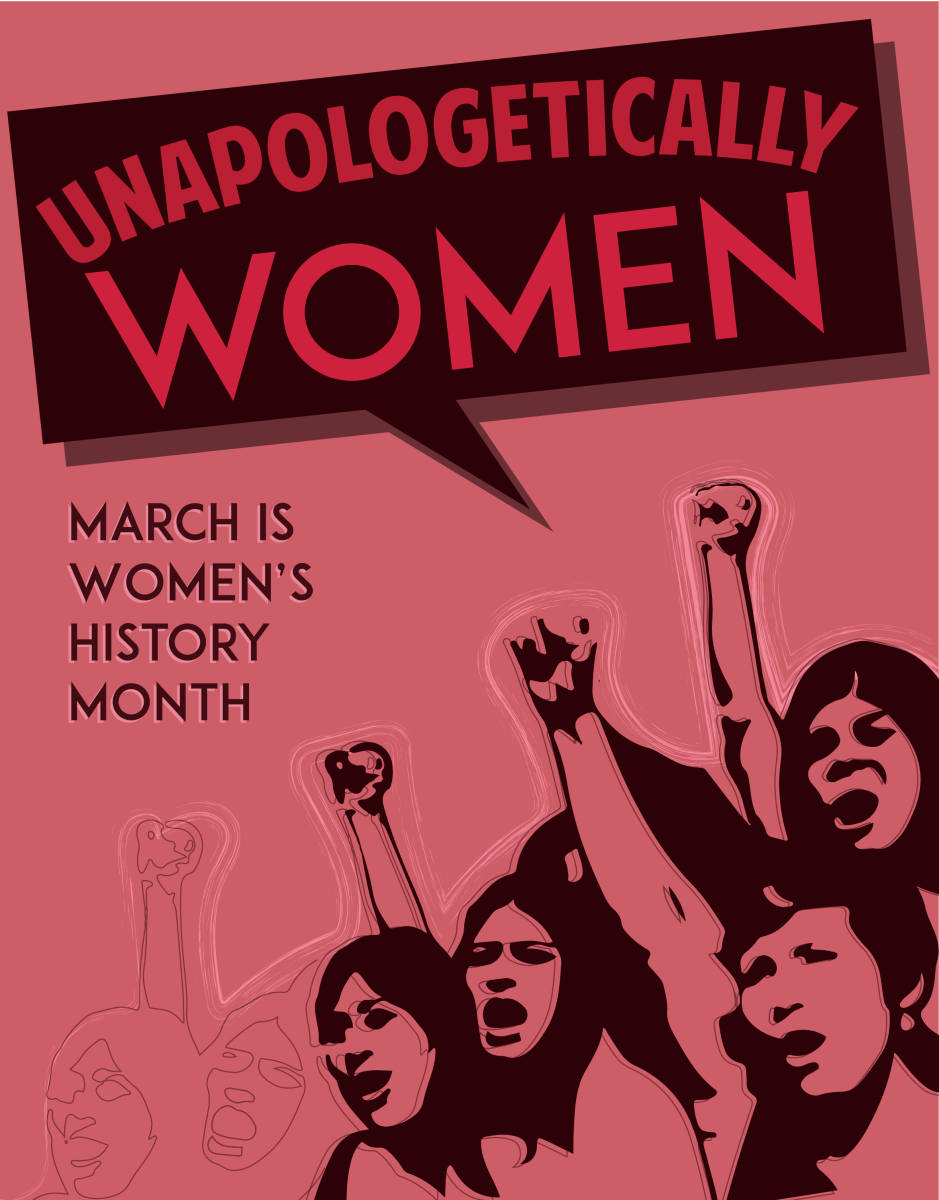March commemorates Women’s History Month – a month highlighting women’s endless contributions to events throughout history, society and across cultures.
In 1980, the week of March 8, which is International Women’s Day, was declared National Women’s History Week. After being petitioned by the National Women’s History Project in 1987, Congress passed a resolution designating March as Women’s History Month. This year NC State is honoring women’s history with its own month of celebratory events, titled Women’s Herstory Month. Running throughout March, Women’s Herstory Month’s theme is “Unapologetically Women: Forging and Healing Our Collective Memories.”
The NC State Women’s Center, located in Talley Student Union, works to “build and create a community of authentic and engaged allies and leaders to pursue gender equity and social justice,” according to their website. The center regularly hosts many events examining the ways women have impacted our past and present and is a pivotal part of Women’s Herstory Month. Lisa LaBarbera-Mascote, the director of the Women’s Center, talked about the goal of NC State’s Women’s Herstory Month’s programs and events.
“We’ve put together committees to put out a collaborative slate of programs in order to just bring attention to issues of gender equity, social justice and intersectional feminism,” LaBarbera-Mascote said.
Intersectionality is a sociological theory that refers to the complex, cumulative manner in which the effects of different forms of discrimination combine, overlap or intersect. Essentially, different kinds of prejudice can be amplified in different ways when put together. The various events that the Women’s Center has, and is continuing to, put on all explore intersectionality at its finest.
Maria Tudela, a graduate services assistant at the Women’s Center, described the Women’s Herstory Month events.
“The first event that we had was on March 12, and it was a lunch-and-learn about an introduction to feminisms and we talked about a variety of different kinds of feminisms, the women’s movement [and] the waves of feminism,” Tudela said. “The conversation was centered around who is included [in] that conversation or in the discussion of feminism and who’s excluded and what are the ramifications of that.”
Chris Finley, a professor from the University of Southern California, gave a keynote speech on March 15 that deconstructed what goes into feminist theory, a theory that is centered on incorporating voices that are not usually highlighted in other kinds of feminist theories, according to Tudela. This keynote was a collaboration with the GLBT Center as well.
In partnership with the African American Cultural Center, there was an event, titled “For Black Girls Who Considered Womanism when Feminism Wasn’t Enuf,” on Tuesday.
The Women’s Center will also be collaborating with Multicultural Student Affairs in a film showing and discussion on March 26 centered on the documentary “Dolores,” which tells the story of Dolores Huerta, an advocate for farmworkers’ rights and founder of the National Farmworkers Association.
“An underlying theme is highlighting voices, highlighting experiences and narratives that haven’t been in the past,” Tudela said.
As the Women’s Center regularly curates a monthly reading list, for Women’s Herstory Month, the center has put together a list of books, articles and poems to take the reader through a wide range of feminist experiences.
“I collaborate with Kahlia Phillips, one of our student workers here, [who] helps me put together a reading list every month and so obviously we did the March reading list in honor of Women’s Herstory Month highlighting memories and histories, both through theoretical literature as well as fiction novels,” Tudela said.
The Women’s Center continues to strive for ways to create opportunities for dialogue that create discomfort – which is critical for understanding others’ individualized experiences – and creating a community that is comfortable with being uncomfortable, according to LaBarbera-Mascote.
“We’re really focused on creating a space for authentic learning and critical discourse around issues of intersectional feminism and social justice,” LaBarbera-Mascote said.
Women’s Herstory Month is a time to celebrate the accomplishments of women and to have a dialogue about gender equity issues, but these issues do not simply disappear at the end of the month and need ongoing discussion.
“I would say, and this is true for Women’s History Month and all the other heritage and history months too – we appreciate that this is a month that we can really celebrate and highlight through some of the programming that we’re doing, but this is also the work that we do year round,” LaBarbera-Mascote said. “We’d love for individuals to get connected, come out to some of our programs, lead some discussions and find ways to get connected to the center.













